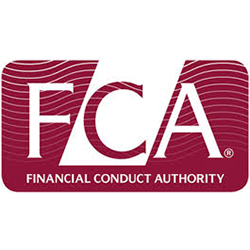Compliance
UK Regulator Wants To Move Faster, Say More About Firms It Investigates

The UK financial regulator says it wants to be more open from the start about the businesses it investigates – a change of stance that has not been well received.
The UK’s Financial Conduct Authority wants to conduct enforcement actions at a faster pace and shut down cases more rapidly when it cannot get a result, it announced yesterday. It also wants to be more open about the firms it is investigating from the very beginning – a stance that has prompted criticism from the wealth industry.
The watchdog also said it will publish updates on probes as appropriate and be open about when cases have been closed with no enforcement outcome.
PIMFA, the UK wealth management industry group, voiced concerns over whether the FCA’s new approach could be counter-productive.
“It is not immediately clear to us how public announcements of potential enforcement action will support the FCA’s approach to supervision and enforcement – it seems unlikely to us that being ‘named and shamed’ publicly would be the primary deterrent for a firm committed to introducing harm into the market,” Alexandra Roberts, head of regulatory policy and compliance, PIMFA, said.
Step change
The FCA explained its change of tack.
“As part of the new approach the FCA has begun a consultation on plans to be more transparent when an enforcement investigation is opened,” the regulator said. “The moves are a step change from the current process where investigations are only announced in very limited circumstances.”
“By being more transparent when we open and close cases we can enhance public confidence by showing that we are on the case,” Therese Chambers, joint executive director of enforcement and market oversight at the FCA, said. “At the same time, we will amplify the deterrent impact of our work by enabling firms to understand the types of serious failings that can lead to an investigation, helping them to change their own behaviour more quickly.”
“Reducing and preventing serious harm is a cornerstone of our strategy. By delivering faster, targeted and transparent enforcement, we will reduce harm and deter others. We will also make greater use of our intervention powers to stop harm in real time," Steve Smart, joint executive director for enforcement and market oversight at the FCA, said.
The FCA said that any decision to announce an investigation would be taken on a “case-by-case basis” and depend on a variety of factors which would indicate whether to do so is in the public interest.
Announcing an investigation does not mean that the FCA has decided whether there has been misconduct or breaches of its requirements, it added.
Some 65 per cent of the watchdog’s investigations close without action, Smart has reportedly said (CityAM, 27 February).
PIMFA queried the wisdom of the FCA’s course.
“More broadly, very real consideration needs to be given to what the potential impact will be on firms that are publicly subject to enforcement action,” Roberts said. “These announcements will lead to significant outflows for small firms, in particular, rendering their businesses hollow shells of what they were previously, whilst larger listed firms will almost certainly be subject to significant shareholder volatility.
“The FCA’s caveat that an investigation does not automatically mean that there has been misconduct, or breaches of their requirements, simply will not register with the wider public and the market. If the FCA is committed to doing this – and we would urge them to really consider if they should – they need to give very real consideration to where the bar for a public announcement is set and who really benefits from a public announcement,” Roberts added.
Law firm WilmerHale also voiced doubts.
“The FCA’s proposal to publicise investigations at a much earlier stage may be viewed by some as misguided. The threshold for opening an enforcement investigation is low; the statutory test requires only that there is good reason for doing so or circumstances suggesting that there may have been a breach of one or more rules, principles, or that certain criminal offences may have been committed,” Imogen Makin, counsel at WilmerHale, said.
“The damage to firms’ reputations – and to ongoing business – from the early announcement of an FCA investigation would be significant, without any proof of wrongdoing, and seems unjustified,” Makin said.
“The consultation paper also includes an unnecessary retrospective application of the policy as the proposal is to extend early publication to firms already under investigation when the policy is introduced, if it is in the public interest,” Makin continued. “The proof will, of course, be in the extent to which feedback is taken into account when any final policy is published, and in its application thereafter. However, at first glance critics may see this as an attempt by the FCA to publicise its work in response to political pressure and criticism, rather than a genuine attempt to fulfil its statutory objectives and improve the way it regulates.”